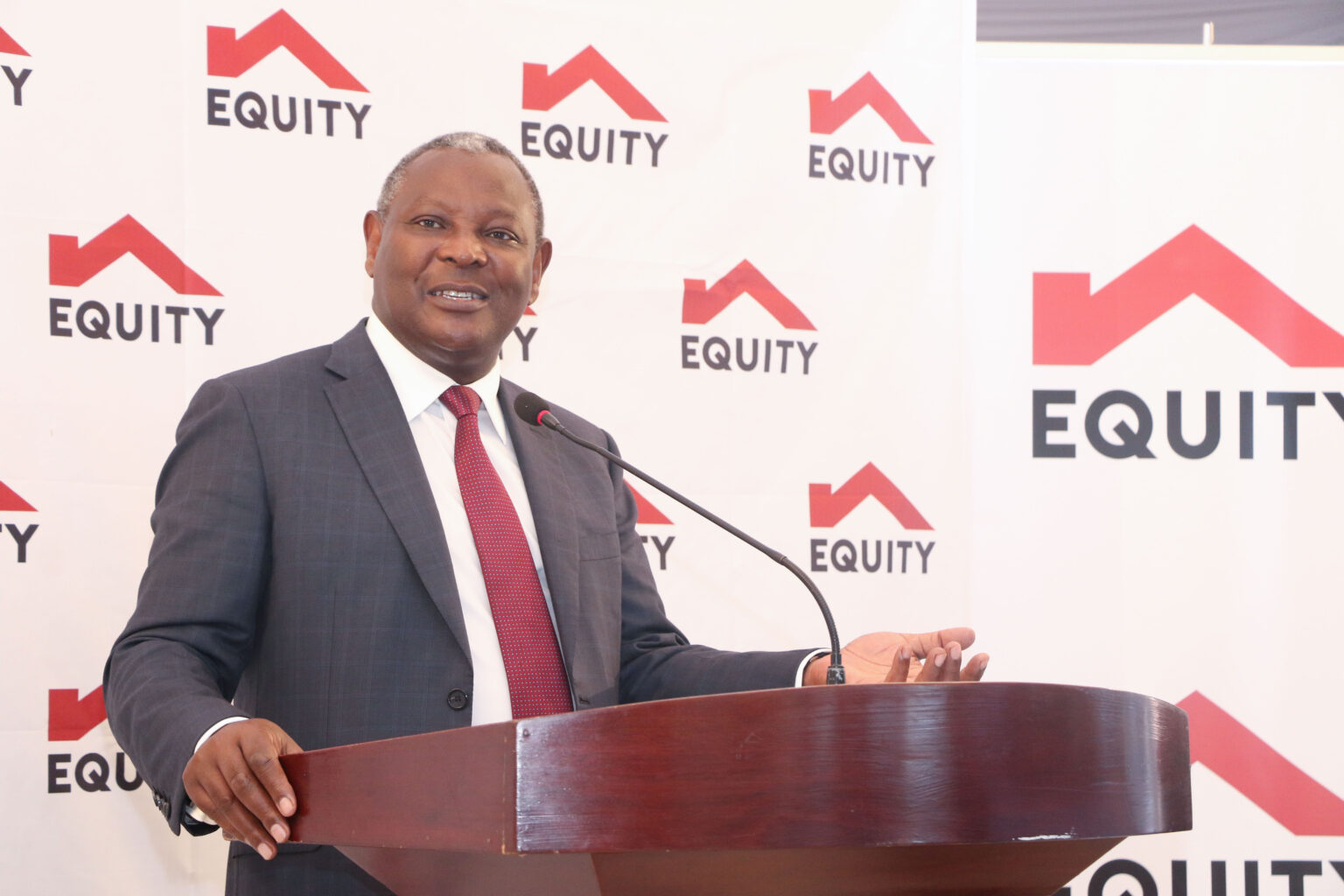- Equity Group grew the volume of diaspora remittances it processed by 39 per cent in 2021 compared to the corresponding period in 2020
- The lender handled Ksh383.5 billion in remittances in the 12 months to December, up from Ksh279.4 billion in 2021
- Equity Group CEO James Mwangi attributed this to linkage with multiple digital platforms, which have helped widen the geographical reach in the remittances segment
Equity Group grew the volume of diaspora remittances it processed by 39 per cent in 2021 compared to the corresponding period in 2020, leveraging on the growing popularity of digital channels for sending money home from abroad.
The lender handled Ksh383.5 billion in remittances in the 12 months to December, up from Ksh279.4 billion in 2021.
The Group’s Chief Executive Officer and Managing Director, James Mwangi attributed this to linkage with multiple digital platforms, which have helped widen the geographical reach in the remittances segment.
Equity partners with over 10 money transfer platforms, including Western Union, PayPal, WorldRemit, MoneyGram and Hellopaisa, Equity Direct in addition to a new platform – Thunes – among others.
“Using fintech capabilities has given us a global presence, and as a result we have become a major processor of remittances payments around the world including across currencies, reflecting on forex trading across the region,” said Mr Mwangi as he announced the full-year financial results.
As a result, the amount in commissions earned by the bank for handling remittances rose from Ksh1.5 billion in 2020 to Ksh1.6 billion in 2021 recording a 10 per cent rise as the forex inflows income rose by 33 per cent from Ksh6.2 billion to Ksh8.3 million.
In Kenya, diaspora inflows have in recent years overtaken agriculture and tourism inflows to become the leading source of foreign exchange for the country.
Equity Group Posts 99% Rise in Net Profit for Year Ended December, 2021
Central Bank of Kenya (CBK) data shows that remittance inflows to Kenya increased by ten times in the last 15 years reaching an all-time record of USD 3,718 million in 2021. This phenomenal growth points to the importance of remittances as a source of foreign exchange to the country, equivalent to more than 3 per cent of Kenya’s GDP.
CBK governor Patrick Njoroge has in past briefings attributed the continued rise in remittances to the adoption of digital channels by banks, which make it easier for people abroad to send money home—directly into the accounts or mobile wallets of recipients.
Profits gained
The group reported a 79% growth in profit after tax for the third quarter of the year to KSh 26.9 billion.
Mwangi said the performance was against a background of the COVID-19 pandemic and its consequent disruption of global economic activities with the resultant social disruptions.
He added that the bank had demonstrated a resilient, versatile business model, leadership agility, innovation and diversification capability and strength of strategy to report a 27% growth in total assets and a 25% growth in total income.
At the same time, the group’s resilience in the execution of an offensive and defensive strategy saw regional subsidiaries grow their Group contribution to deposits to 42% up from 40%, revenue to 37% up from 30% and profit before tax to 26% up from 21%.
Agility saw a 27% growth in total funding deployed into public and private sectors resulting in 36% growth in lending.
Diversification driven by a regional approach with operations in 6 countries helped in diversifying sovereign risks and a currency mix risk of 56.6% local currency and 43.4% foreign currency risk-mitigating exchange and translation risks.
Mwangi added that an inclusive business model for all market segments and sectors of the economy and segments and classes of the population demography helped to mitigate loan book quality and performance leading to an NPL of 8.9% compared to Kenya’s industry performance of 13.9% NPLs.
The offensive growth strategy has seen a 23% growth in net loans and advances and a 62% growth in investment in Government securities resulting in a 29% growth in interest income.
The growth in earning assets has been funded by a 48% growth in long-term funds of KSh 104.8 billion up from KSh70.7 billion and a 27% growth in customer deposits of KSh 875.7 billion up from KSh 691 billion driving total assets growth of 27% to KSh 1.184 trillion up from KSh 933.9 billion.
Higher quality nonfunded income grew faster by 29% to KSh 31.4 billion up from KSh 24.3 billion than net interest income which recorded a 23% growth to KSh 48.5 billion up from KSh 39.3 billion.
FX-trading income grew by 40% to KSh 5.6 billion up from KSh 4 billion. E-commerce revenue grew to KSh 953.5 million up from zero. Bond trading income increased to KSh 2.6 billion up from KSh 2.2 billion.
The Group is increasingly shifting from its legacy brick and mortar model of the fixed cost structure of branches and ATMs to a variable cost, self-service model of clients’ own electronic devices or third-party infrastructure.
Diaspora Remittances in EAC Economies Add Up to $3.5 Billion
